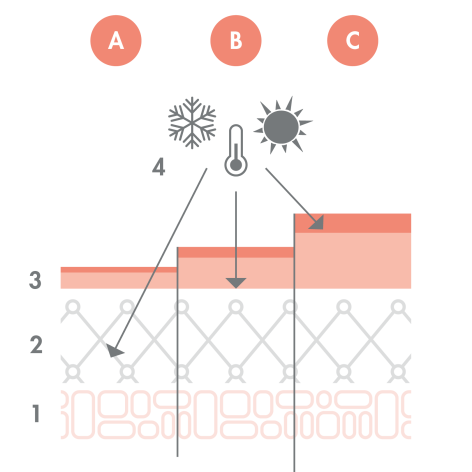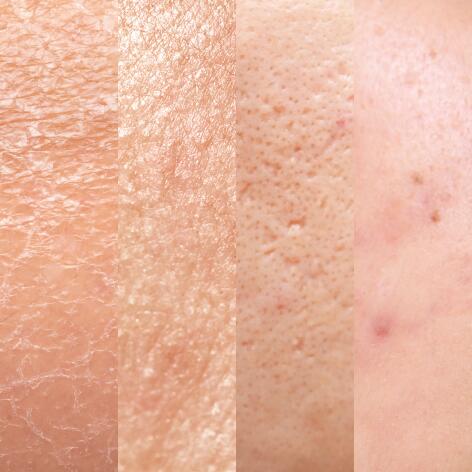Adolescence and early adulthood: the skin in all its states!
Adolescence is characterised by hormonal shifts that have effects on the skin. The sweat and sebaceous glands are working at full capacity. This is what gives the skin that oily look and even blemishes. Some products for this very common skin concern have the effect of drying out the skin, so it is very important to choose moisturising products carefully.
In early adulthood, the first signs of ageing begin to appear, due to external factors (sun, tobacco, pollution, unsuitable products, etc.) and internal factors: the dermis and epidermis become thinner, the skin barrier is less effective, the skin becomes thinner, less supple and sometimes drier.
What causes the skin to dry?



